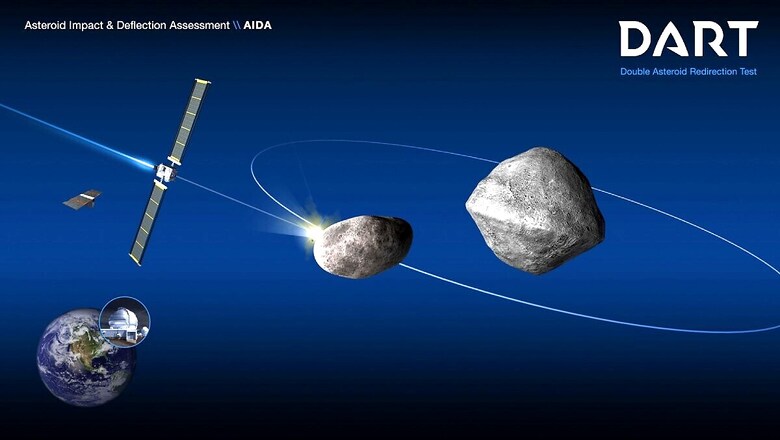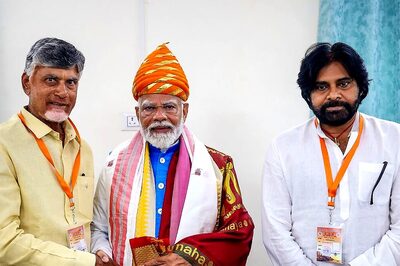
views
The threat of a massive asteroid crashing into Earth some time in future and wiping out civilisation as we know it may sound like a premonition of impending doom suited only for a Will Smith apocalypse movie, but the potential of such an incident in the distant future is very much a reality. While space agencies including NASA have been working on a project that aims to study the potential of deflecting such space rocks off their natural trajectory for a while, Eventech, a Latvian research lab with a history of working on space projects, is now working on ultra high precision deep space timers, which will be flown out in a future mission with the aim to calculate a trial project to divert asteroid Didymos from its near-Earth soiree expected in about a century.
The first part of the project will be undertaken by NASA, which is scheduled to launch its Double Asteroid Redirection Test (DART) mission in July 2021 about a SpaceX Falcon 9 rocket. The probe, which will include cameras onboard, is slated to fly to asteroid Didymos and smash into the space rock with the hope of deflecting it away from its natural trajectory. Five years later, the European Space Agency (ESA) will launch Hera – the second part of NASA-ESA’s collaborative Asteroid Impact and Deflection Assessment (AIDA) project. Hera will include Eventech’s high precision timers, and will be instrumental in calculating the asteroid’s potentially changed new trajectory. In summation of the entire mission, if all goes well, mankind will be successful in redirecting Didymos away from a potential collision course with Earth.
Eventech has substantial experience in space missions, and its precision timers are regularly deployed in space and in observatories on Earth to keep track of our planet’s crowded orbits, filled with satellites deployed for various purposes. These timers help calculate trajectories and regularly avoid collisions between two satellites in the same orbit. It is this experience that Eventech will aim to use in the timers that are to be deployed in the Hera mission.
For this, the lab is working on creating an all-new setup that can track planetary trajectories that can be measured and calculated from a moving space probe. In the distant future, such equipment may be pivotal to space missions that take mankind to other planets. Interestingly, an AFP report on Eventech states that its engineers use analogue equipment as far as possible, which helps in the picosecond precision recordings that its timers are capable of recording. This seemingly offers superior accuracy of readings, which can be critical in space missions – more so in ones that hope to save mankind from an impending apocalypse.
Read all the Latest News, Breaking News and Coronavirus News here




















Comments
0 comment